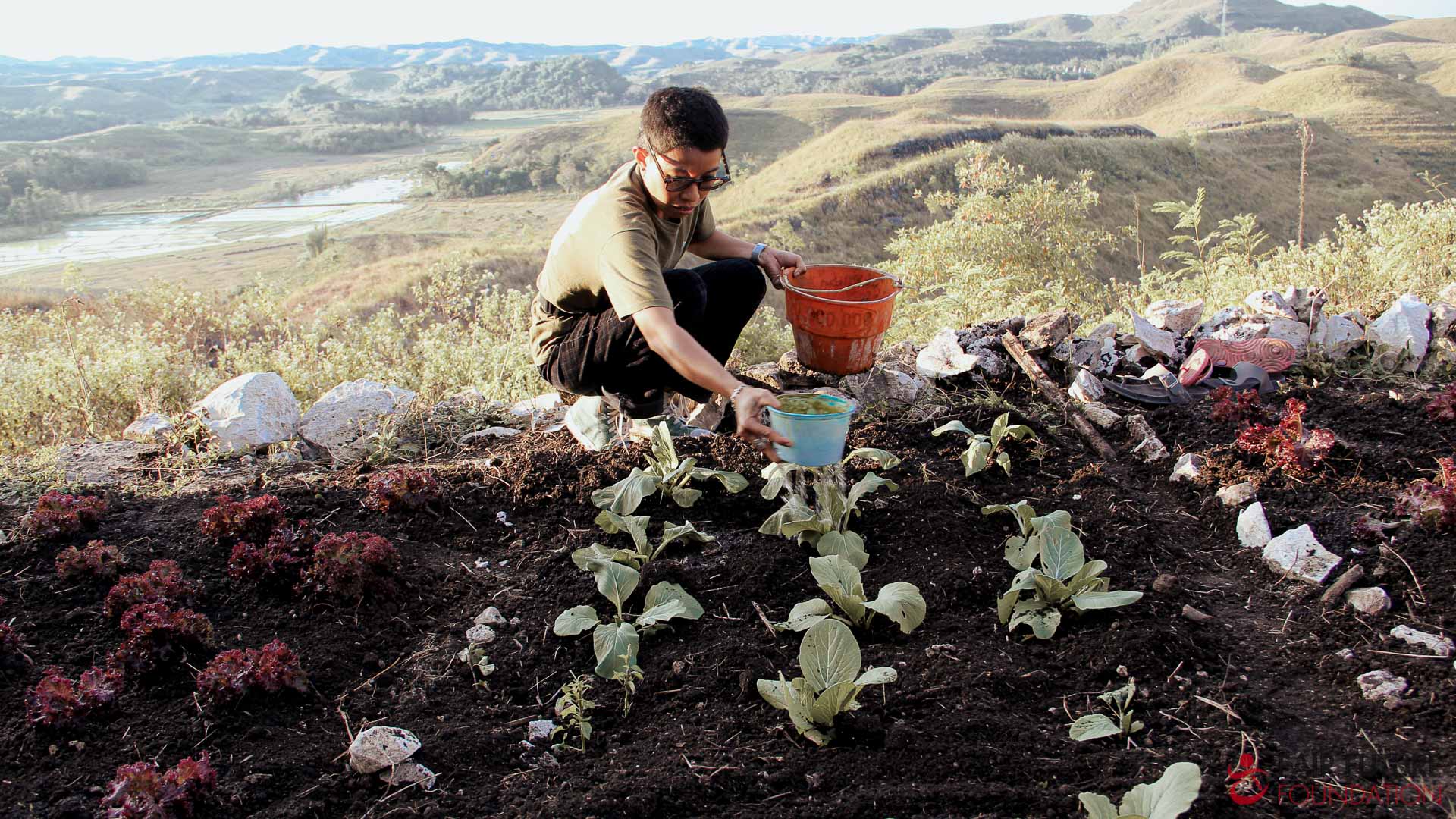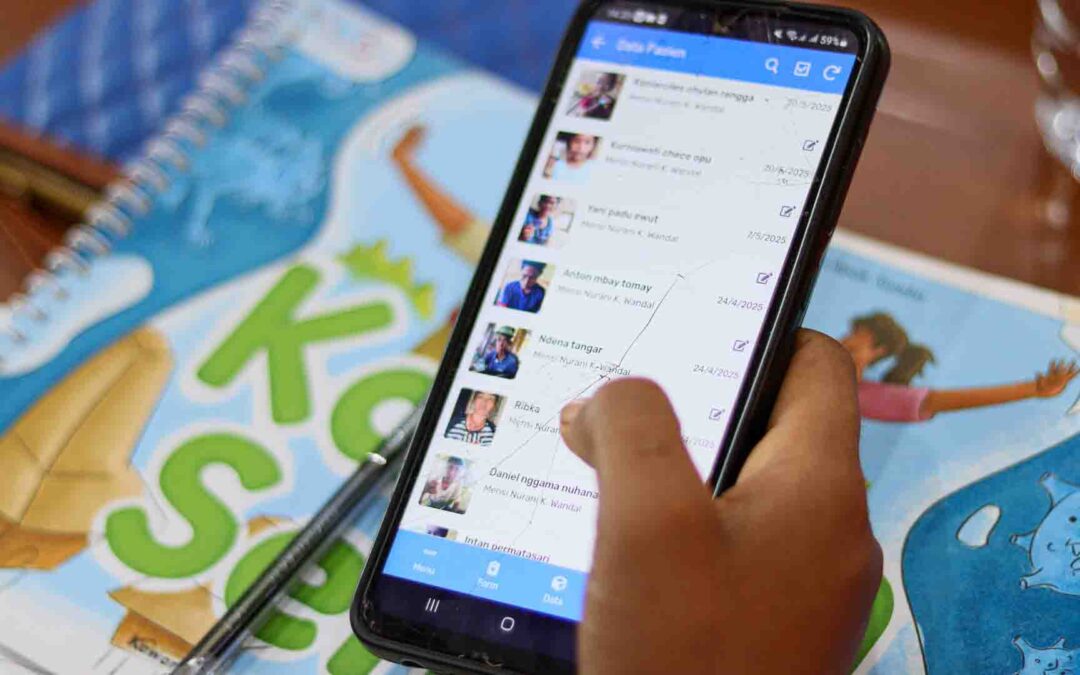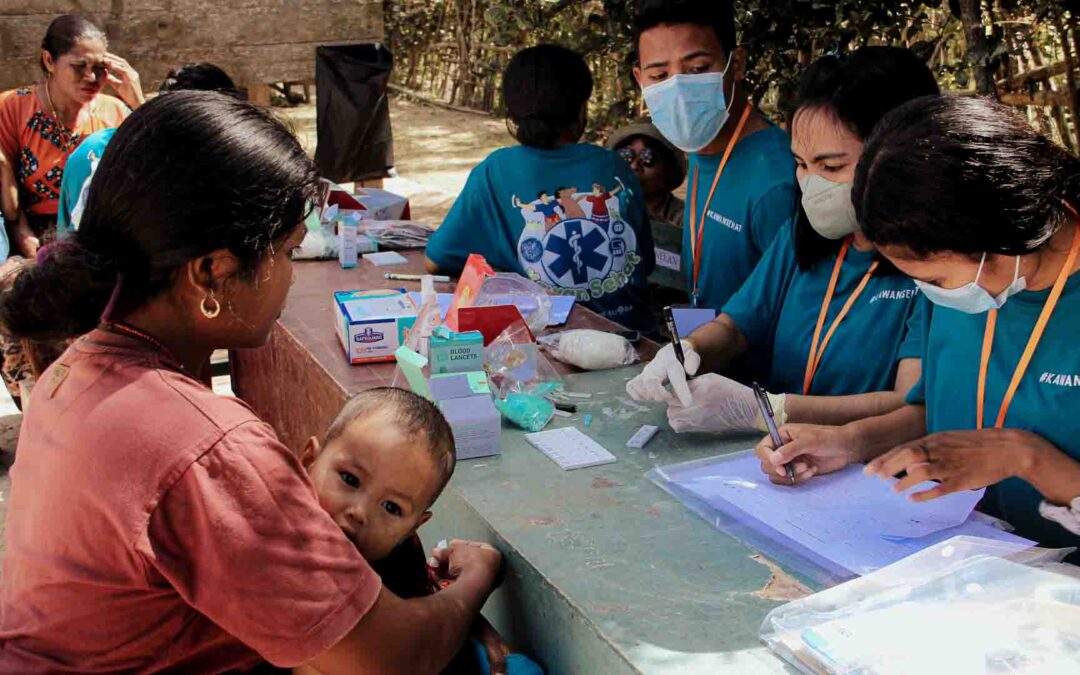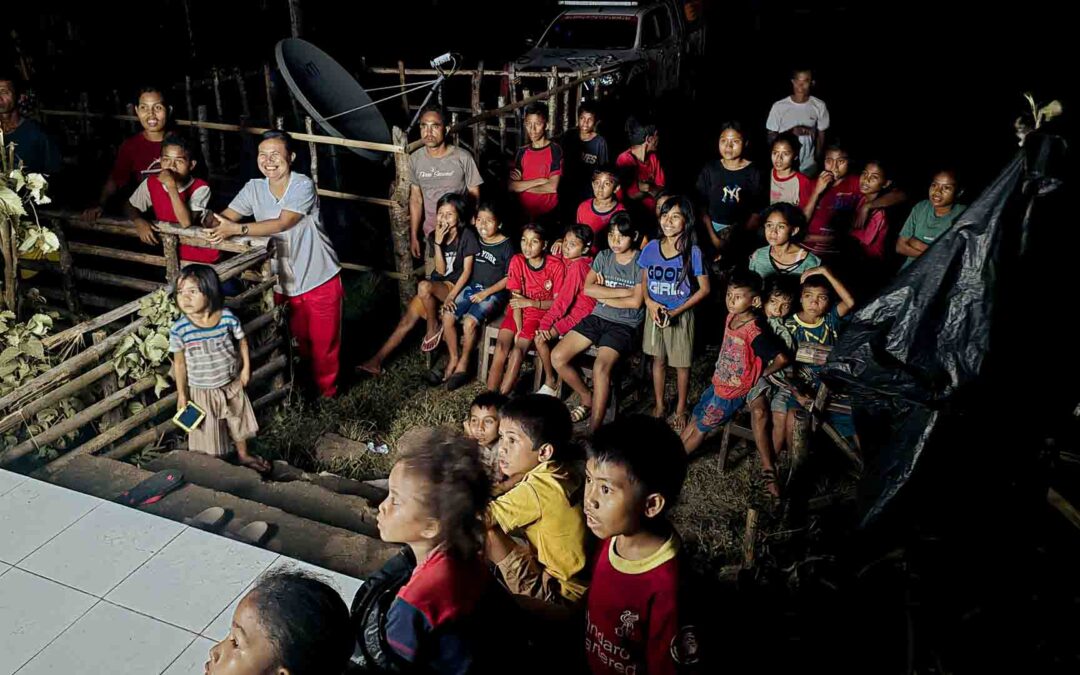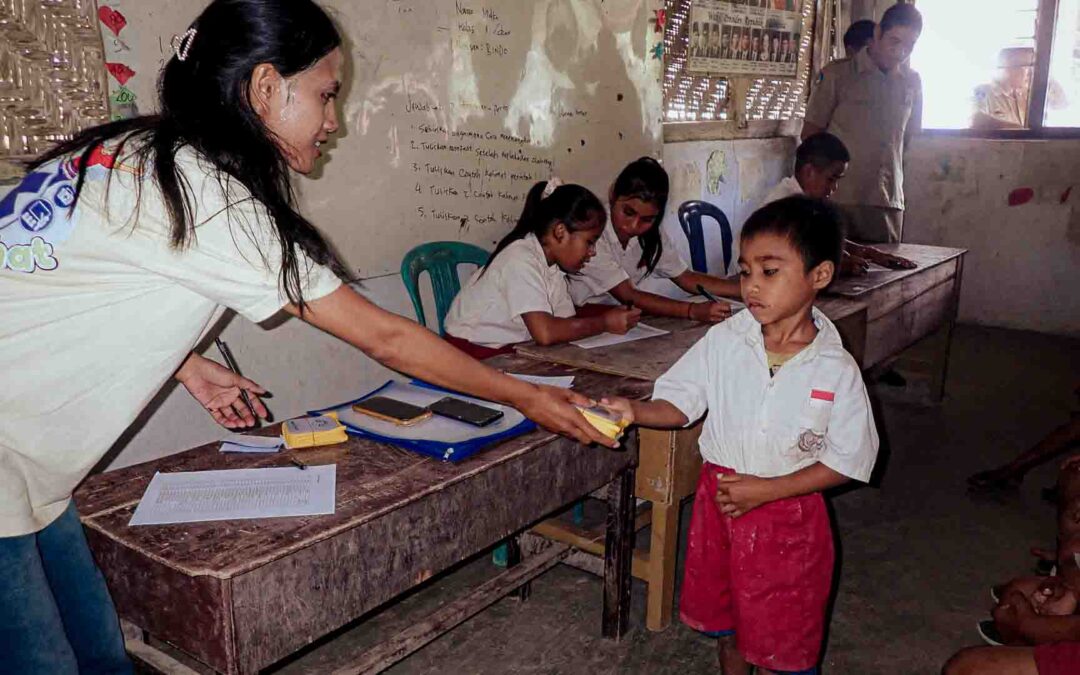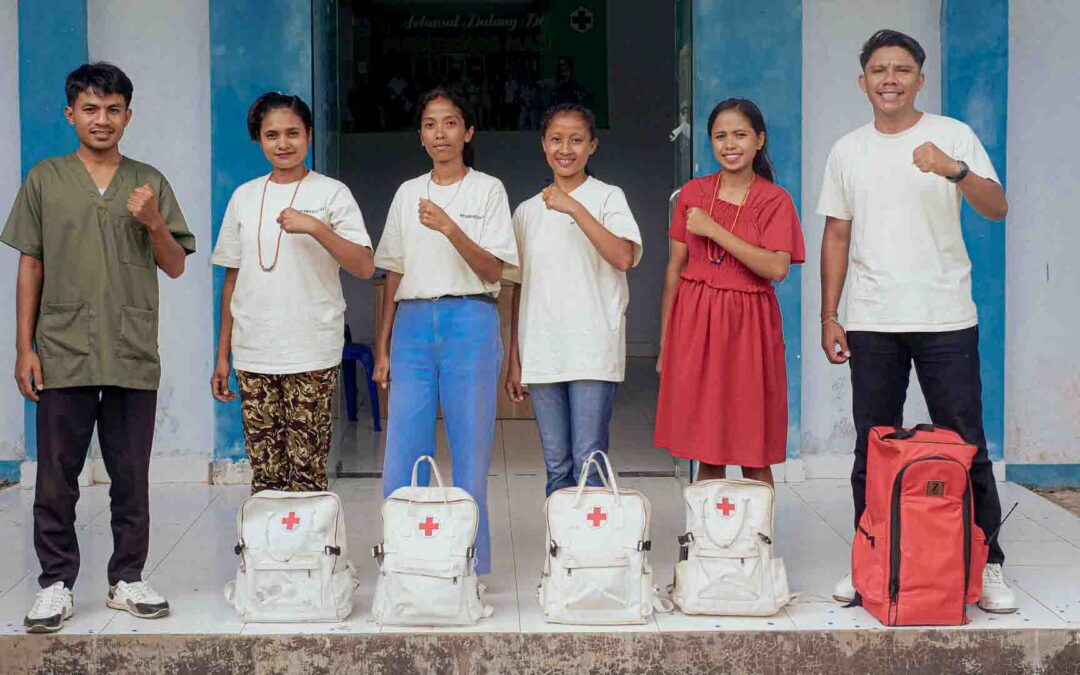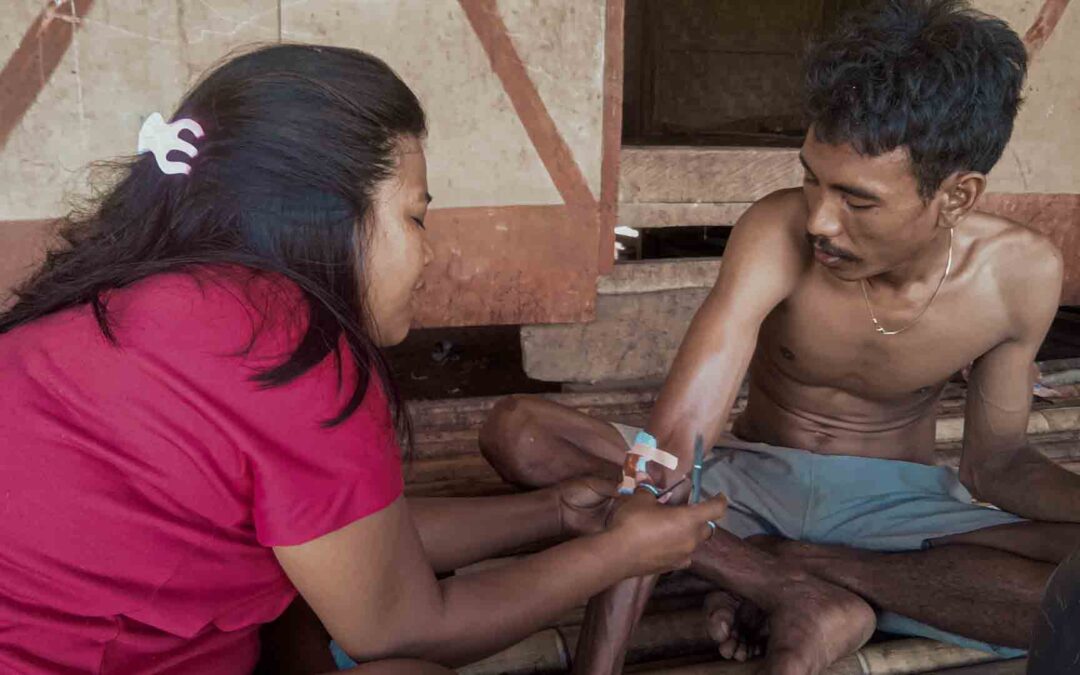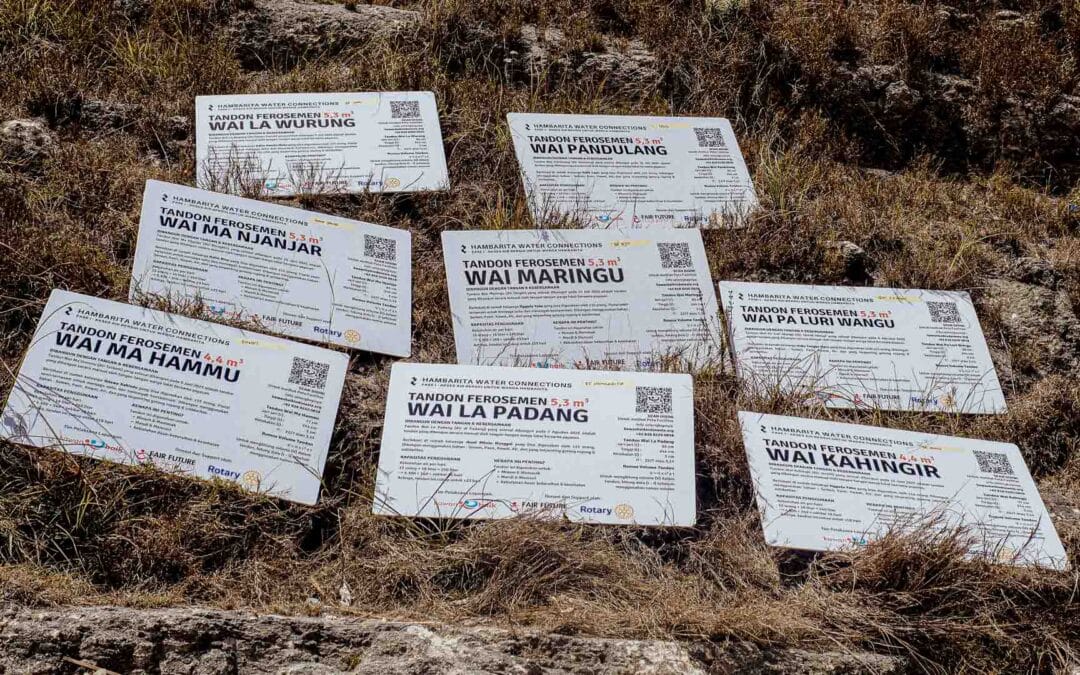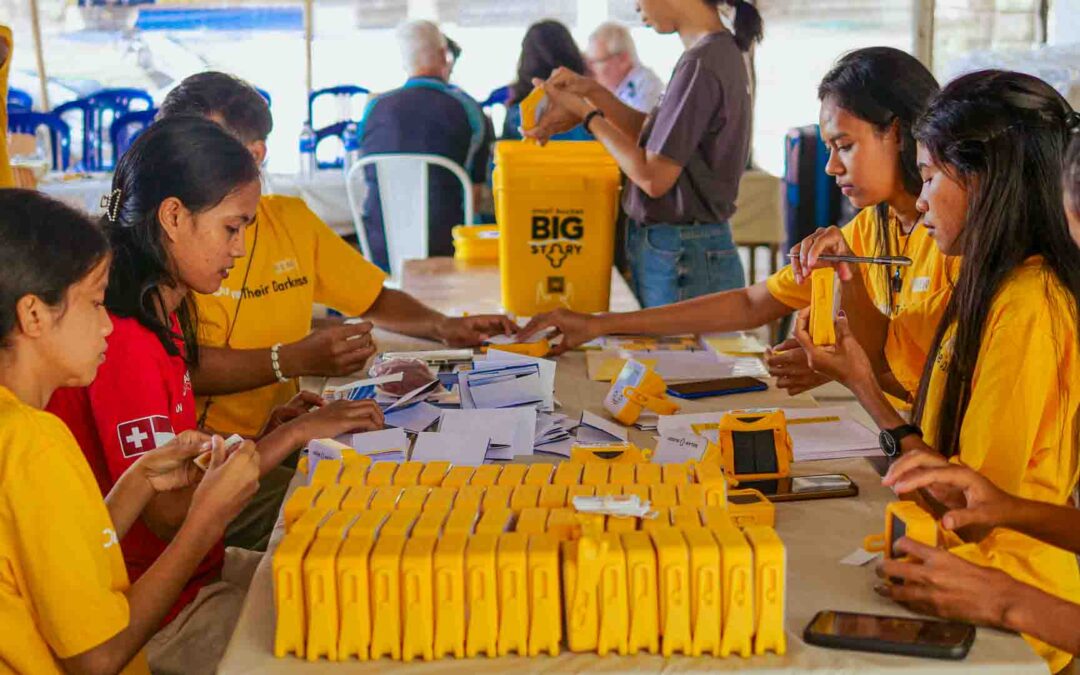Fair Future is an innovative initiative aimed at uplifting rural communities by focusing on two fundamental needs: access to clean water and education. By providing these essential resources, Fair Future empowers communities to establish and maintain vegetable gardens, which serve as a cornerstone for improved nutrition and health.
This image is in 1920×1080 resolution. Click on it to enlarge and view at full size.
Picture of the Day: Improving Health and Nutrition Through Innovative Water Solutions
Today’s featured image shows one of our team members watering vegetables in a community garden we created with villagers in rural East Sumba. Thanks to the Water Connections program and the training we provide in schools and villages, what once seemed unattainable is now possible.
Access to clean water transforms lives. It’s crucial for drinking and cooking, allowing communities to maintain gardens, grow vegetables, and improve nutrition. For economically disadvantaged areas like this, gardening can lead to better health and self-sufficiency.
The greatest health is wealth, but the greatest wealth is the health of our community: Access to clean water directly impacts health by minimizing the prevalence of waterborne diseases. It helps children grow stronger and healthier, families eat more nutritious meals, and entire communities build resilience against disease. A well-nourished body is better equipped to fight infections, endure more extended periods of vitality, and face daily challenges with greater strength in rural areas.
“Access to clean water is not an end in itself but a means of improving health, nutrition, and livelihoods” – Fair Future, 2023.
Our efforts go beyond simply installing water systems. We focus on empowering communities with practical knowledge and skills. By educating villagers on growing vegetables, managing resources, and improving nutrition, we deliver sustainable, life-changing solutions that last.
The team ensures that these solutions are effectively implemented by being on the ground and working closely with villagers. Every garden and every litre of water from a clean supply illustrate the power of collaborative effort and underscore the importance of sustainable, community-driven approaches.
Fair Future is dedicated to building a healthier future through direct action. Our mission is to ensure clean water and better nutrition, which are essential to this goal. We focus on creating solutions rather than simply offering hope.
If you want to support these life-changing programs, join us in providing clean water, better health, and a brighter future for rural communities. Together, we can grow more than just gardens: we can feed lives.
Happy New Year to everyone.
Alex Wettstein – Fair Future Foundation medico-social camp in East Sumba – Rumah Kambera, Lambanapu – December 30th 2024.
External Links
- UNICEF: Advocates for water, sanitation, and nutrition programs in rural communities worldwide.
- WaterAid: Focuses on clean water access and hygiene education to improve lives.
- Action Against Hunger: Combines clean water, nutrition, and health education for sustainable solutions.
- Heifer International: Empowers rural communities with agricultural tools and education to build self-reliance.
- World Food Programme: Provides food security solutions and sustainable gardening initiatives in underserved regions.
Educational Support for Schools and Children
Empowering children begins with access to education. We welcome donations that help us equip schools and learning centers. Educational books for all levels, school supplies such as notebooks, pencils, rulers, and chalkboards, interactive learning games, and uniforms are always needed. Laptops, tablets, and functional computer equipment can make a world of difference for children in remote areas, helping them stay connected to knowledge. Classroom furniture—desks, tables, and chairs in good condition—ensures children have a space to learn and grow.
Medical Equipment and Supplies for Health Centers and the Medical Truck
Access to healthcare saves lives. We need sterile syringes, medical gloves, bandages, dressings, disinfectants, and small surgical kits to provide essential care. Diagnostic tools such as stethoscopes, thermometers, blood pressure monitors, and malaria or polio tests help us respond to medical emergencies. Mobility aids like wheelchairs and crutches are essential for patients. Donations of maternity and newborn care equipment are critical to ensure safe births. Our Medical Truck also relies on PPE, infusion kits, and diagnostic devices to reach isolated communities in need of care.
Tools and Equipment for Construction and Water Infrastructure Projects
Building sustainable infrastructure is key to improving living conditions. Our projects need construction tools—hammers, saws, drills, and wrenches—along with materials such as cement, wood, and rebar. Donations of solar panels, batteries, and converters are essential to power water pumps for clean water access. We also need plumbing fittings, PVC pipes, and water tanks to complete wells and water systems. Proper safety gear—helmets, boots, and gloves—ensures the well-being of our teams during construction.
Clothing, Bedding, and Household Items for Families in Need
In ultra-rural areas, basic items can make a big difference. We welcome clean and gently used clothing for children and adults, as well as shoes suitable for the terrain—sandals, boots, and more. Bedding donations like blankets, sheets, and mattresses help families stay comfortable and ensure our health centers can care for patients overnight. Books and toys bring joy and learning opportunities to children. Your contributions provide dignity, warmth, and well-being to families with limited resources.
Support for Emergency Situations and Disaster Relief
Our teams are always ready to respond to emergencies such as natural disasters or health crises. Your donations can directly support relief operations—whether through first aid kits, flashlights, batteries, or tarps for temporary shelters. We are committed to reaching remote areas quickly, ensuring that affected communities receive the immediate assistance they need to rebuild and recover.



